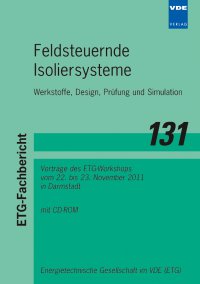Mineral Oil Electrical Conductivity and Field Grading in Insulation Systems for HVDC Converter Transformers
Conference: Feldsteuernde Isoliersysteme - Werkstoffe, Design, Prüfung und Simulation - Vorträge des ETG-Workshops
11/22/2011 - 11/23/2011 at Darmstadt, Deutschland
Proceedings: Feldsteuernde Isoliersysteme
Pages: 5Language: englishTyp: PDF
Personal VDE Members are entitled to a 10% discount on this title
Authors:
Piovan, Ugo (Trafoexperts GmbH, Uster, Switzerland)
Krause, Christoph; Schenk, Guido (Weidmann Electrical Technology AG, Rapperswil, Switzerland)
Abstract:
Electrical conductivities of transformer oils differ substantially - batch to batch, supplier to supplier and new versus aged. Unlike water content, breakdown voltage, etc., the electrical conductivity of transformer oil is normally not monitored. Oil conductivity cannot be measured with a proper standard method (present IEC/ASTM methods use too little dielectric stress and last too short time). Therefore, great changes can occur in oil conductivity between testing and service. Likewise, these changes will also result in significant changes in the distribution of the DC electric field (which depends on conductivities) inside the insulation system of an HVDC converter transformer. In particular new oils are available with a conductivity - when non-aged - very close to the one of oil impregnated pressboard and, therefore opening up the possibility of designing HVDC insulation systems simpler than the traditional ones (which are based on the assumption of oil being 100 times more conductive than pressboard at 20 °C, thus taking also into account higher oil conductivity due to aging). This paper compares the effects of oil conductivity variations on the simplified and the traditional HVDC insulation systems both in terms of effectiveness of DC and Polarity Reversal tests and reliability in service.


